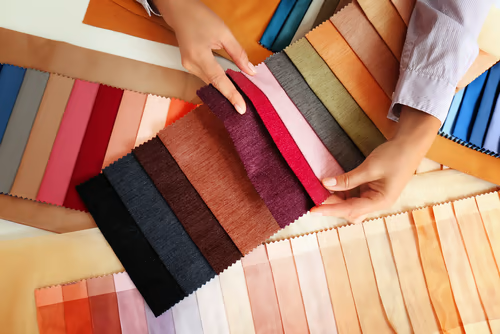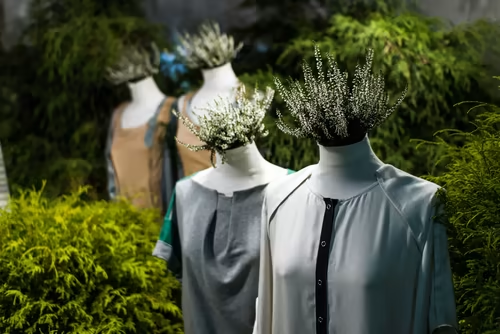Sustainable fabrics revolutionize fashion industry
As the fashion industry becomes increasingly aware of its impact on the environment, sustainable fabrics have emerged as a vital component of ethical and eco-friendly fashion.

Other Sub-categories
A One Stop Platform From Design To Delivery
We provide real-time tracking and updates through our state-of-the-art technology platform.

Never Miss a Beat
Get weekly email updates from Fashinza to your inbox

What our partners say about us

‘Very clear when it came to tracking the order’s progress’
Fashinza’s platform was very clear when it came to tracking the order’s progress. It was convenient as anytime I could check the current progress of the order. All my questions were answered professionally and in a timely manner by customer support. The shipment of samples I received was much appreciated and alleviated any worries regarding the quality of the finished goods!
Kristina Garrison,
Head of Purchasing

The Benefits of Sustainable Fabrics
Examples of Sustainable Fabrics
What are sustainable fabrics?
Frequently asked question
Q. Are sustainable fabrics more expensive?
A. While sustainable fabrics can be more expensive than traditional fabrics, they often offer a greater value over time due to their durability and longevity. Additionally, many eco-conscious consumers are willing to pay a premium for sustainable fabrics in order to support environmentally and socially responsible practices.
Q. Can sustainable fabrics be fashionable?
A. Absolutely! Sustainable fabrics come in a wide range of styles, colors, and designs, making it easy to incorporate them into fashionable clothing and accessories. Many designers are now focusing on sustainability as a key element of their collections, creating beautiful and stylish pieces that are also eco-friendly.
Q. How are sustainable fabrics produced?
A. Sustainable fabrics are produced using natural, biodegradable materials and low-impact manufacturing processes that minimize waste and reduce environmental impact. Many sustainable fabrics are also produced using fair labor practices, ensuring that workers are treated fairly and paid a living wage.
Q. How can I make sure I'm buying sustainable fabrics?
A. Look for certifications such as GOTS (Global Organic Textile Standard) or OEKO-TEX, which indicate that a fabric has been produced using sustainable and socially responsible methods. Additionally, do your research and read product labels to learn more about the materials and processes used to create the fabrics you're interested in.
Other articles in this category
5 Uses of Recyclable Cotton
|
Natural Fibres And The Easiest Way To Achieve Long-Term Fashion Sustainability
|
Time to Incorporate These New Sustainable Materials In Your Clothing Designs
|
15 Facts About Sustainable Fabrics
|
Modal : Sustainable Rayon
|
Sateen Fabric: Origin, Weaves, Types, Application, Exporters, and Sustainability
|
Velvet: Origin, Uses, Types, Major Producers, Environmental Impact, Care Tips, and More!
|
Polyester: Origin, Composition, Uses, Major Exporters, and Sustainability





















